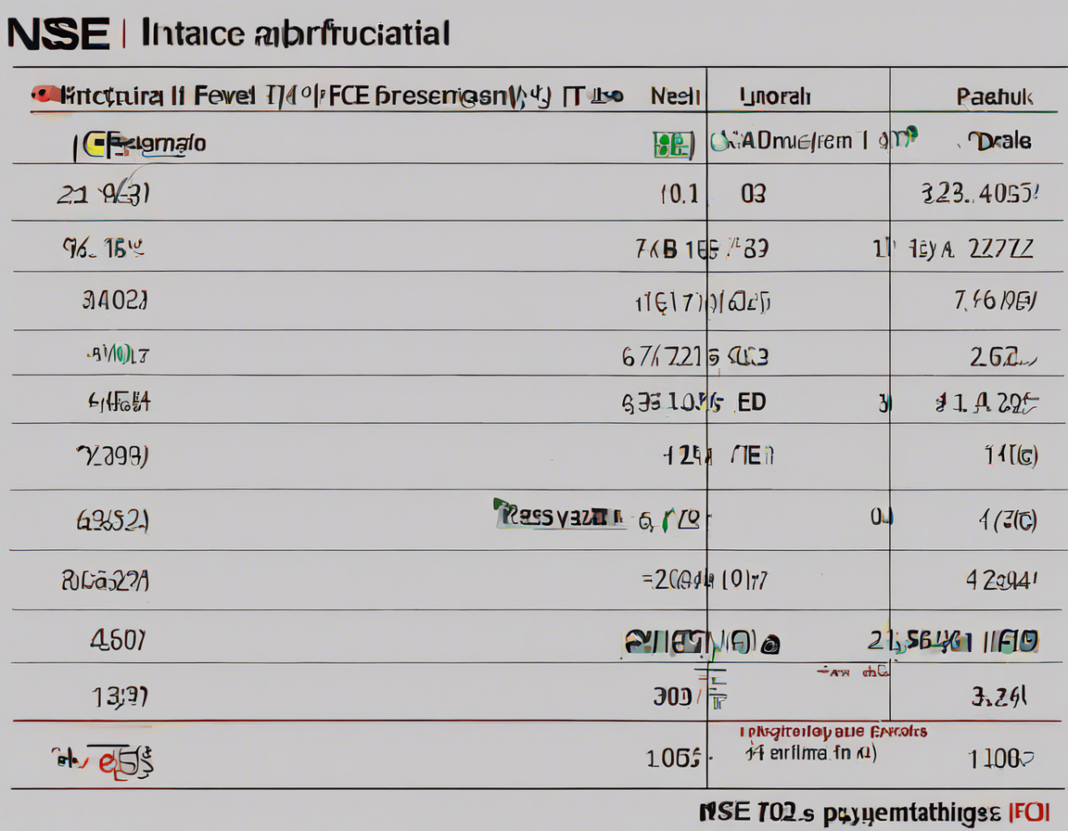Unlocking the Potential of NSE: IFCI
The National Stock Exchange of India (NSE) is one of the leading stock exchanges in the country, facilitating the trading of a wide range of financial instruments. Among the diverse entities listed on the NSE, IFCI Ltd. holds a significant position. Established in 1948, IFCI is a pioneer in the field of industrial finance in India, playing a crucial role in supporting the growth and development of various industries across the nation.
Understanding IFCI:
IFCI stands for the Industrial Finance Corporation of India, and it operates as a government-owned financial institution. The primary objective of IFCI is to provide financial assistance to industrial projects, aiding in their establishment, expansion, and modernization. Over the years, IFCI has extended its services beyond just financing and has ventured into areas such as advisory and consultancy services, project development, and restructuring of industrial projects.
IFCI’s Presence on the NSE:
Being a prominent entity in the Indian financial landscape, IFCI has a visible presence on the NSE. Investors keen on exploring opportunities in the industrial sector often keep a close watch on IFCI’s performance on the stock exchange. By analyzing IFCI’s stock movements, investors can gain insights into the overall health of the industrial finance sector and make informed decisions regarding their investments.
Key Factors Influencing IFCI’s Performance on the NSE:
Several factors can impact IFCI’s performance on the NSE. Understanding these factors is crucial for investors looking to assess the potential risks and returns associated with investing in IFCI. Some of the key factors include:
-
Government Policies: Since IFCI is a government-owned financial institution, changes in government policies and regulations can significantly influence its operations and performance on the NSE.
-
Economic Conditions: The overall economic environment, including factors like interest rates, inflation, and GDP growth, can impact IFCI’s financial health and, in turn, its stock performance on the NSE.
-
Industry Trends: Trends in the industrial sector, such as growth prospects, technological advancements, and market demand, can also influence IFCI’s performance on the NSE.
-
Financial Performance: IFCI’s own financial performance, including aspects like revenue growth, profitability, and asset quality, plays a crucial role in determining its stock performance on the NSE.
Analyzing IFCI’s Stock Performance on the NSE:
Investors and analysts employ various tools and techniques to analyze IFCI’s stock performance on the NSE. Fundamental analysis, which involves evaluating IFCI’s financial statements, business model, and competitive position, can provide valuable insights into the company’s intrinsic value and growth potential.
Technical analysis, on the other hand, focuses on IFCI’s historical stock price movements and trading volumes to identify trends and patterns that can help predict future price movements. By combining both fundamental and technical analysis, investors can make well-informed decisions regarding their investments in IFCI.
Strategies for Investing in IFCI on the NSE:
Investing in IFCI on the NSE requires careful planning and a thorough understanding of the company’s fundamentals and market dynamics. Here are some strategies that investors can consider when investing in IFCI:
-
Long-Term Investment: For investors bullish on the long-term growth potential of IFCI, adopting a buy-and-hold strategy could be beneficial. By holding IFCI’s stock for an extended period, investors can benefit from potential capital appreciation as the company grows and expands its operations.
-
Risk Management: Given the inherent risks associated with investing in the stock market, including market volatility and economic uncertainties, implementing risk management strategies, such as diversification and setting stop-loss orders, can help investors protect their capital while investing in IFCI on the NSE.
-
Keep Abreast of Developments: Staying updated on the latest developments related to IFCI, such as corporate announcements, financial results, and industry news, is essential for making informed investment decisions on the NSE.
Frequently Asked Questions (FAQs) about IFCI on the NSE:
- Is investing in IFCI on the NSE risky?
-
Investing in any stock carries inherent risks, and IFCI is no exception. It is essential to conduct thorough research and assess your risk tolerance before investing in IFCI on the NSE.
-
What are the key financial metrics to consider when analyzing IFCI’s performance on the NSE?
-
Some key financial metrics to consider include revenue growth, profitability ratios, asset quality indicators, and liquidity ratios.
-
How does regulatory environment impact IFCI’s stock performance on the NSE?
-
Changes in regulations and government policies can have a significant impact on IFCI’s operations and financial performance, thereby influencing its stock performance on the NSE.
-
What are the growth prospects for IFCI on the NSE?
-
Assessing IFCI’s growth prospects involves analyzing factors such as industry trends, economic conditions, and the company’s strategic initiatives to expand its business.
-
Should I consider dividends when investing in IFCI on the NSE?
- Dividends can be an important factor to consider, especially for income-oriented investors. Evaluating IFCI’s dividend history, payout ratio, and dividend yield can help assess the company’s dividend-paying capacity.
In conclusion, investing in IFCI on the NSE can offer opportunities for investors seeking exposure to the industrial finance sector in India. By understanding the key factors influencing IFCI’s performance, analyzing its stock movements, and adopting suitable investment strategies, investors can make well-informed decisions to optimize their investment returns. Conducting thorough research, staying updated on market developments, and seeking professional advice can further enhance the investment experience when trading IFCI’s stock on the NSE.




